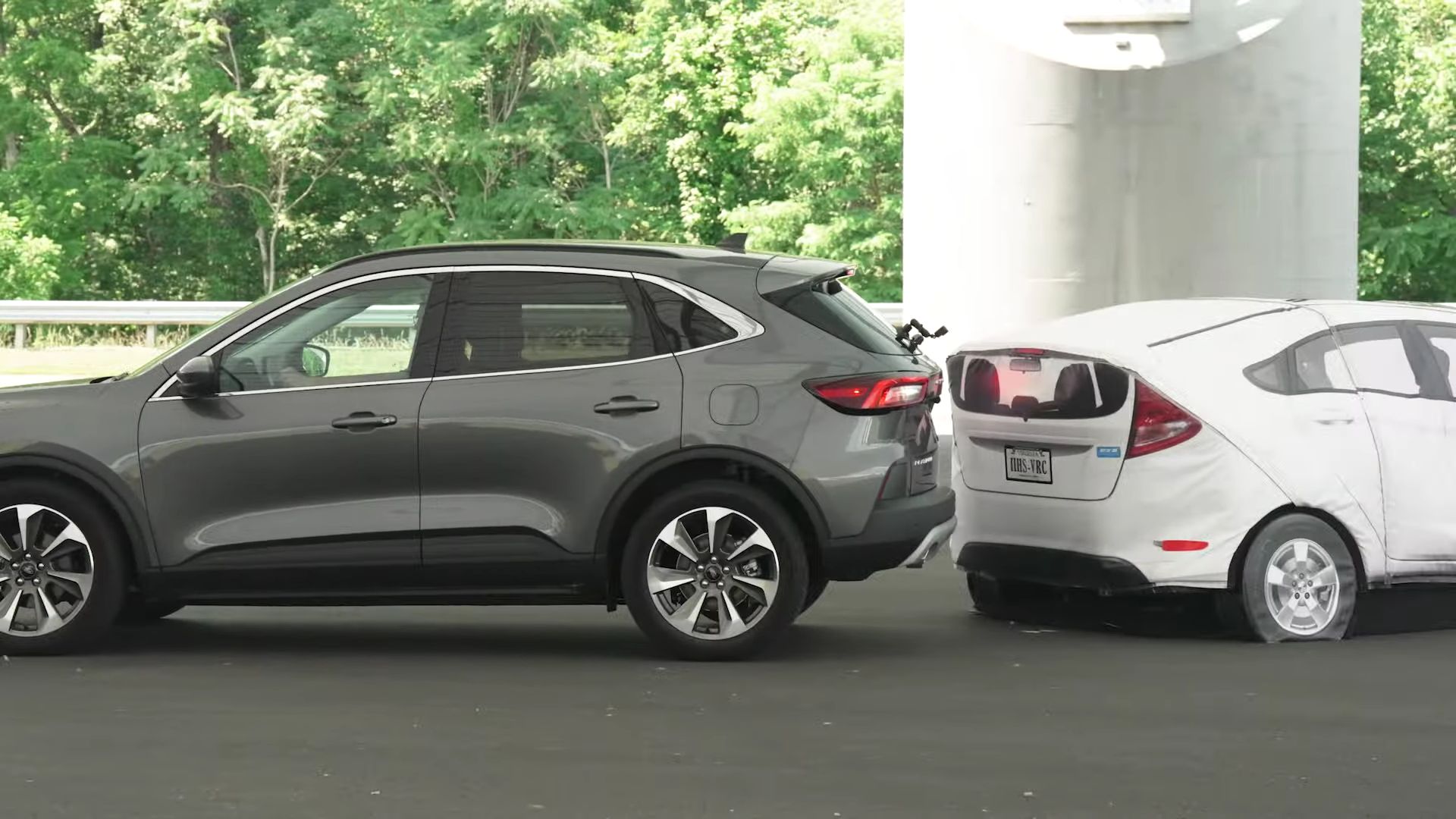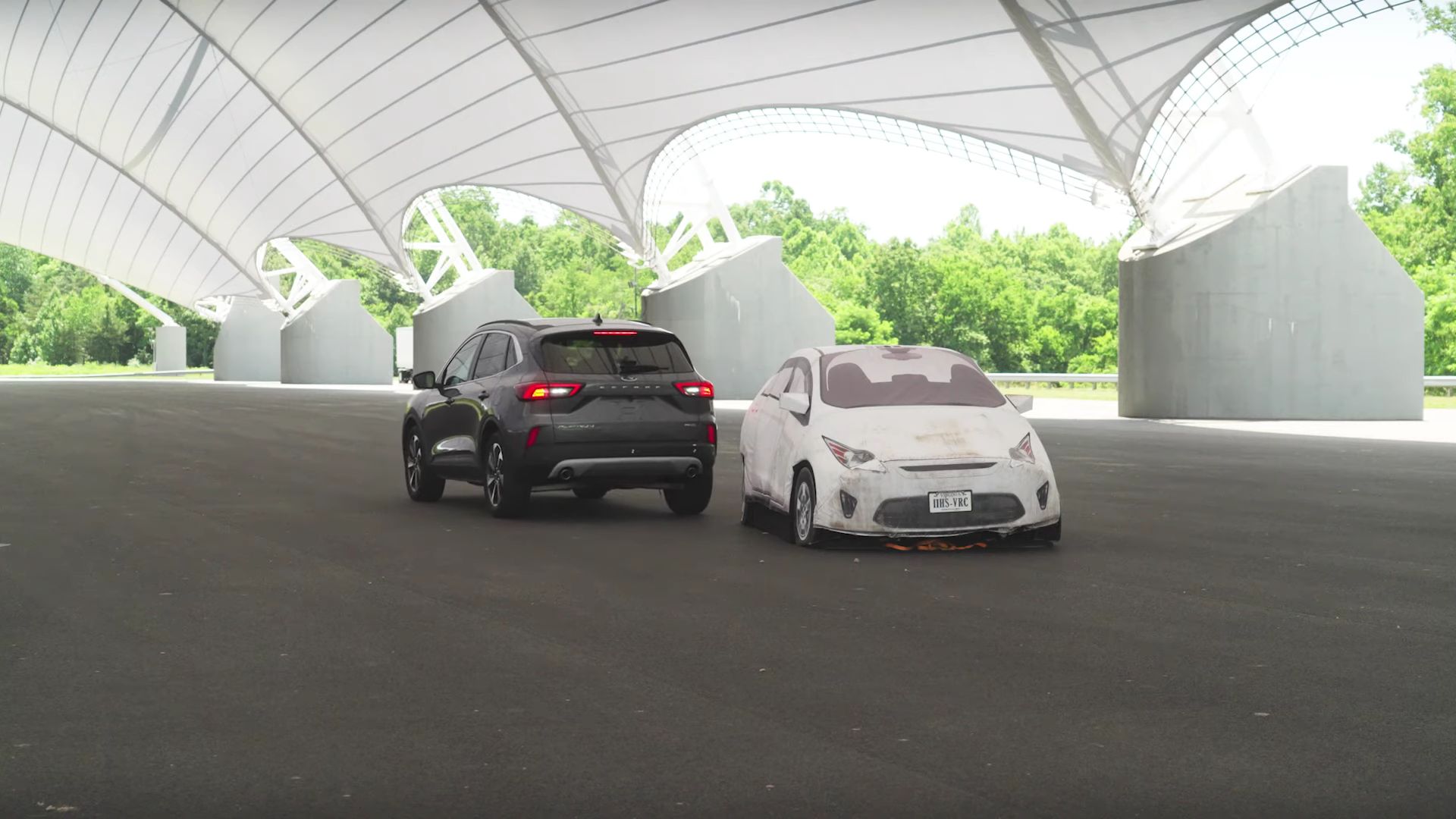The Insurance Institute for Highway Safety recently evaluated the rear crash prevention systems of eight popular small SUVs. The nonprofit organization assessed these vehicles’ ability to detect obstacles while backing up and automatically brake to prevent or mitigate collisions.
While not all systems performed equally, the Ford Escape, Honda CR-V, Mitsubishi Outlander, and Subaru Forester excelled, earning the highest “Superior” rating. Models like the Mazda CX-5, Toyota RAV4, and Volkswagen Taos achieved a middle-of-the-road “Advanced” rating, with varying success in different test scenarios.
Conversely, the Hyundai Tucson scored the lowest “Basic” rating, failing to prevent collisions in any test. The Ford Escape outshined its compact crossover rivals in rear collision avoidance tests, consistently evading a target dummy car, even when positioned at a challenging 10-degree angle.

This stood in contrast to the Subaru Forester, which failed to avoid the target at a 45-degree angle, while the Honda CR-V and Mitsubishi Outlander collided in both tests. The CR-V’s performance was further marred by a collision with a bollard.
These results underscore the importance of rear automatic emergency braking (AEB), a feature that can significantly reduce the frequency and severity of rear-end collisions.
While adding to a vehicle’s cost, the long-term savings from reduced repair bills make it a worthwhile investment. The Ford Escape, the top performer in these tests and twin to the Bronco Sport starts at $27,995, excluding destination charges.

